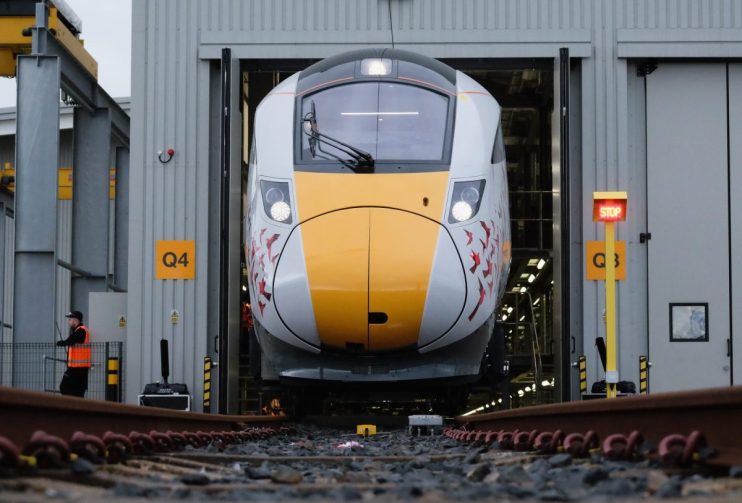Why the new Labour government should invest in trains, not planes

The aviation industry’s contribution to the economy has long been its most relied upon defence for expansion.
We’re told in business circles any environmental concerns surrounding airport expansion, or airlines carrying record passenger traffic, are outweighed by the huge net positive for the UK economy.
The contribution of the likes of Heathrow, Gatwick, British Airways and Easyjet is undeniably significant, with the aviation sector as a whole pumping around £12bn annually into the UK.
But the sector’s importance for economic growth and GDP is rarely questioned. Here’s a statistic that will surprise many: There has been no net increase in business travel in the UK’s aviation sector since 2006.
In absolute terms, business passenger numbers peaked before the financial crisis, when they made up one in every six passengers (17.4 per cent). By 2022, their share of the market had declined to just one in every 12 passengers (8.2 per cent).
The narrative post-Covid has focused on a slower “recovery” in corporate travel, but the above suggests businesses placing less and less importance on business trips goes deeper than the pandemic. Executives have for years been reducing their flying hours, as platforms such as Zoom and Teams eliminate the need for long trips to meet with clients and business partners.
Covid-19 exacerbated this trend. In 2023, there were 3.9m fewer air trips made for business purposes, a decline of 29 per cent since 2019. Alongside this, businesses splashed out £2.9bn less on air trips, in a shift described by the New Economics Foundation (NEF)’s Alex Chapman as a “decoupling” of business air travel and the economy.
Granted, leisure travel still does benefit GDP through tourism and the like, yet its overall contribution would not by itself justify executives’ claims about the business benefits of air travel growth.
City Airport provides an interesting case study. As of this year, more than 50 per cent of the East-London hub’s traffic, known for being dominated by business travel due to its proximity to Canary Wharf, is for the first time made up of leisure trips.
The recent decision by Labour to override City Airport’s local council and grant it permission to expand conversely brought into focus an even more pressing point; according to analysis from NEF, more than half of the journeys taken from the hub last year could actually have been reached in six hours or less by train.
The UK’s railway industry has for years struggled with under-investment, poor service, delays and disruption. A string of government bailouts and long-running struggles have meant it is often discussed as a drain on the economy.
Yet it contributes over £36bn annually, a greater economic impact than the food, drink, tobacco and chemical and pharmaceutical industries.
And in recent months, it has looked to finally be reaching a turning point in its recovery from the dark days of the pandemic.
The industrial dispute, which has cost the sector millions over the last two years, looks close to reaching a resolution under Labour. The introduction of Great British Railways (GBR), a long-delayed plan to create a ‘guiding mind’ for the sector, has brought most private operator’s into the fold. And the government’s pledge to renationalise the network, despite its flaws, has given much-needed clarity.
It is the perfect time to ramp up investment in trains as opposed to turning too much attention to the aviation sector, whose plans to decarbonise rest heavily on the questionable assumption that Sustainable Aviation Fuels (SAF) can be rolled out cheaply enough by 2050. There are also doubts as to whether they are actually sustainable in the first place.
While taking the train is obviously better for the environment, it’s time to make the economic case for boosting investment in Britain’s rail network.